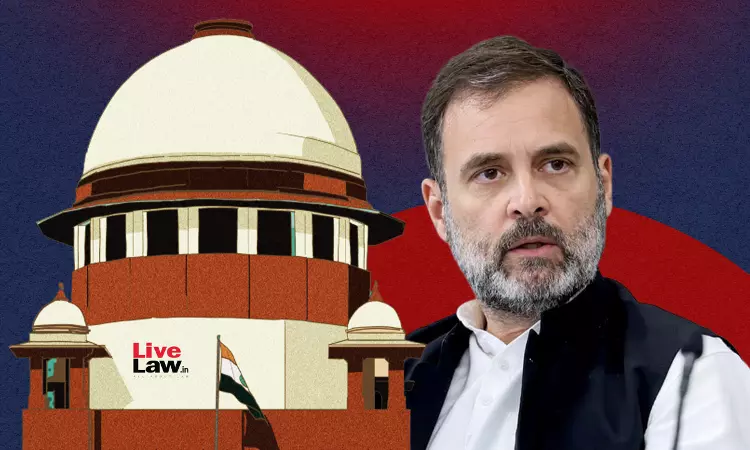Supreme Court stays defamation case against Rahul Gandhi but questions his claim on Chinese occupation, saying, “If you’re a true Indian, you wouldn’t say this.”
New Delhi, August 4, 2025 — The Supreme Court of India issued a sharp rebuke to Leader of Opposition Rahul Gandhi on Monday during a hearing on a criminal defamation case tied to his 2022 remarks about the Indian Army and the Galwan Valley clash. While granting interim stay on the proceedings, the apex court expressed deep concern over Gandhi’s claim that 2,000 sq. km of Indian territory were occupied by China, asking: “How do you know that? Were you there?”
The Court’s Observations
A two-judge bench comprising Justice Dipankar Datta and Justice AG Masih grilled Gandhi’s counsel, Dr. Abhishek Manu Singhvi, about the factual basis of the controversial claim. Justice Datta questioned, “Do you have any credible material? Why do you make such statements… If you’re a true Indian, you wouldn’t say all this.”
Singhvi defended Gandhi’s statements as expressions of concern over transparency and suppression of critical information during the Galwan conflict. He argued that Gandhi merely echoed concerns already covered by the media and had every right to raise them as Leader of the Opposition.
The court responded pointedly, urging that such issues be raised in Parliament and not via public or social media statements, especially ones that may demoralize the armed forces.
Legal Context and Interim Relief
The Supreme Court has issued notice on Gandhi’s Special Leave Petition challenging the Allahabad High Court’s May 2025 order, which had refused to quash the defamation case filed by former BRO Director Uday Shankar Srivastava. That order had supported the Lucknow MP-MLA court’s decision to proceed with the case based on Gandhi’s December 2022 Bharat Jodo Yatra remarks.
Srivastava alleged Gandhi’s repeated statements — suggesting Indian soldiers were being “thrashed” by the Chinese Army in Arunachal Pradesh — were defamatory and harmed the morale of the Indian armed forces and their families.
Justice Datta noted the importance of Gandhi’s role, but warned against using public platforms for claims not supported by verified facts. While granting Gandhi a three-week interim stay, the bench clarified that the remarks were unbecoming of a national leader, particularly one of his stature.
Political & Legal Fallout
Gandhi’s team argued that the complaint was politically motivated and that it ignored Section 223 BNSS, which mandates a hearing before taking cognizance. However, Justice Datta pointed out that this procedural claim wasn’t raised at the High Court level.
The case has sparked renewed debate on freedom of speech vs. national responsibility, especially for public figures commenting on national security.

